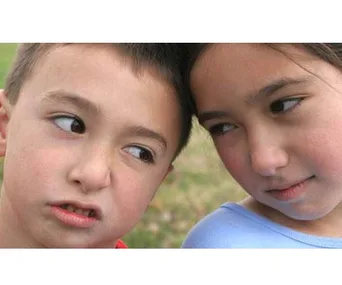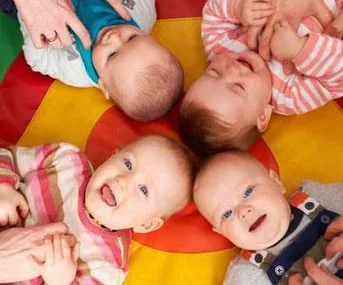In our child-centric society, are our efforts to pander to our children’s needs and protect their sense of self-worth doing more harm than good? Are we producing a generation of kids used to getting their own way?
US academic Joseph Epstein recently coined the term “kindergarchy” in an article for The Weekly Standard magazine referring to a “new world order in which children rule”.
Although a somewhat extreme explanation for this current cultural trend, our society is becoming increasingly dominated by our children’s needs — what they eat, who their friends are, their schooling, what they wear, what they own and, of course, their wellbeing.
Some, such as Epstein, argue that the attention we lavish on our children and our apparent need to micro-manage their lives is unnecessary, and breeds a generation of kids who are weak in character, used to getting their own way and rarely ever have their sense of self-worth challenged by their environment — both at home and at school.
It’s the notion of “tough love” versus “too much love”, but it’s not just parents who are producing such a self-centred and self-proclaimed “deserving” Generation Y.
It could be argued that our schools are also playing a significant role, with increasing importance placed on “navel-gazing” in the classroom.
An online network for mothers in the UK, Netmums, recently published some of their members’ feelings on this issue.
One mother criticised the “cushioning effect” of current schooling practices, saying, “awarding stickers and praise for inconsequential trivia masks what children really need and are looking for — guidance, consistency, self-reliance and love”.
The concern is that adults are becoming fearful of challenging children or placing too much pressure on them to succeed and may well be overcompensating by wrapping their children in metaphorical cotton wool.
Epstein warns, “Who would have thought that so much love in the home would result in such far from lovable children?”
The mollycoddling of children appears to be a worldwide phenomenon. The world’s attention was recently directed at the so-called “discriminatory” actions of a young schoolboy who wanted to hand out invitations to his birthday party at school, but was prevented from doing so on the grounds that, unless he was inviting every pupil, it would be deemed as discrimination.
Japan is also suffering the effects of a spoilt generation of children, illustrated by a recent primary school production of Snow White, which starred no less than 25 Snow Whites but no dwarfs because parents baulked at the notion that only one child would be awarded the starring role.
This overprotective attitude may also be contributing to a decline of behaviour in schools as teachers become more wary of punishing belligerent children, who are acutely aware of their “rights”.
So, why this slippery slope towards a child-centred society, breeding a Generation Y that is “unrealistic, self-centred and greedy”, according to the Association of Graduate Recruiters in the UK?
Professor of sociology at the University of Kent, Frank Ferudi, thinks that this behaviour is more of an “adult-centeredness” rather than a “child-centeredness”, and told The Times recently that “it’s a way of reassuring ourselves that our children are going to be insulated from pain and adversity”.
He said, “We tell children they are wonderful now for tying their shoelaces or getting 50 per cent in an exam. But, really, it’s our way of flattering ourselves that we’re far more sensitive to children than people were in the past.”
Professor Furedi says that, by treating children like this, parents and teachers are unwittingly giving them the message that they won’t be able to cope with life. Is this really how we want to influence our children?
So, while positive psychology and teaching children the value of their self-worth undoubtedly has its merits, perhaps there should be a greater balance with the notion that life can be tough and you have to learn to deal with it? Do we, in fact, underestimate the resilience of our children with this need to overprotect them?



